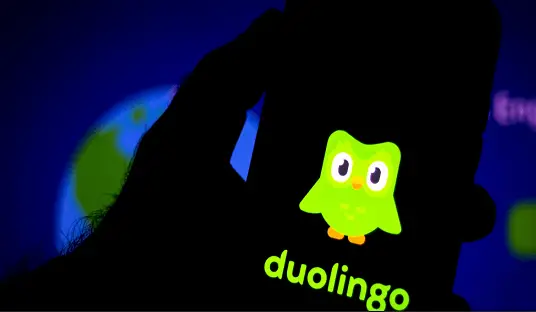Duolingo plans to raise $558 mln at a valuation of $3.1 bln in an IPO, which could be a landmark for the EdTech sector.
What is EdTech?
EdTech is often called online education, but this field has long gone beyond this interpretation. It includes all the digital tools that help in development and education. In general, the EdTech market began to develop in the late 1990s. At that time, the industry was actively seeking venture capital investments. In 2008, the first mega-round of the decade, when the Beijing-based Ambow Education Group received 103 million dollars.

Over the past ten years, venture capital investments have increased 32-fold. Before 2015, the USA accounted for the bulk of assets, and China since 2015. However, the situation changed as early as 2021.
EdTech is often mistaken for the online tutoring and services where you can buy coursework online, but that’s not true. Of course, those are a big part of EdTech. However, EdTech offers more and covers the whole educational process or is trying to do so.
Impact of the pandemic
The EdTech sector grew dynamically long before the COVID-19 pandemic, but its emergence has globally accelerated this process. According to the results of the third quarter of 2021, investment in the industry had already exceeded 14 billion dollars. In the pre-pandemic year of 2018, the figure was only 8.2 billion dollars.
New professions, new sectors, and even entire industries are emerging more and more actively. They require new skills and constant professional development. According to the World Economic Forum, nearly 85 million jobs will disappear in the next five years – jobs and technology will be replaced. At the same time, it will create 97 million new roles. EdTech provides you with the tools to learn whatever you want, wherever and whenever you want.
The “academization of leisure” – people’s desire to spend their free time with pleasure – is actively developing. They often prioritize learning something new, and EdTech is a convenient way to digitalize educational products.
Edutainment Development. An approach that combines learning with playful elements and changes the perception of education as such. Gamification of educational products makes it easier to understand the material studied.
In addition, the growth rate of EdTech is competing with medical and financial technologies and is one of the most promising areas of IT. According to the HlonlQ analytical platform, the industry may grow 2.5 times from 2019 to 2025, and spending on EdTech by that time will exceed $400 billion.
Language learning service Duolingo plans to raise $558 mln for IPO at $3.1 bln. According to its application, people learn more online due to the pandemics, and the company plans to address the situation.
Duolingo is offering 5.87 million Class A shares for sale at prices ranging from $85 to $95 each. If all the shares are sold at the maximum price, the company will earn $558 million. The valuation of the service may exceed $3.1 billion.
The value of the Duolingo IPO will become even higher if the estimate includes the shares, the rights to which were transferred in the form of RSU or options. In the case of Duolingo, the number of claims will grow to more than 44 million, and at this rate, it will cost $3.7 billion to $4.2 billion, TechCrunch says. Either way, the company has been worth a lot more than that since the fall of 2020, when it received $35 million from Durable Capital Partners and General Atlantic for an estimated $2.4 billion.
Duolingo will be traded on the Nasdaq under the ticker DUOL. Goldman Sachs and Allen & Company are the organizers of the listing. Duolingo applied for an IPO but updated on June 19, specifying the number of shares for sale and their prices.
Context
Duolingo was founded in 2011 by two engineers, Luiz von Ahn and Severin Hacker. It has approximately 40 million active users per month. On its platform, the company offers 40 languages for learning, including Hawaiian and Irish, which, according to its data, today are taught by more people than there are noses. Duolingo has been downloaded about 500 million times from Google Play and App Store.
In the first quarter of 2021, the company raised the virus to $55.4 million. 72% of the virus was received from subscriptions and 17% from advertising. In the second quarter, the virus Duolingo amounted to $ 58 million. Moreover, its revenues increased from $2.2 million to $13.5 million at the beginning of 2020.
The educational platform Preply, created by a Ukrainian team, also grew during the pandemic. More specifically, the service received $45 million in investments (although the founders did not disclose the exact numbers). According to Forbes, Preply was valued at $130-200 million.
During six months of 2021, the amount of contracts in EdTech is already higher than in 2020: the average contract in this area today – is $9.4 million, three times more than last year. Seven companies have already netted $50 million each in various markets. These indicators show that the companies were able to win due to the high demand for online training during the EdTech pandemic year. The situation may further improve if Duolingo demonstrates good results at the IPO. Other developers of educational services may be able to use this for their IPO or while looking for investors, TechCrunch writes. However, if the growth of Duolingo is spoiled after the entry to the stock exchange, the spiral of sales additions in the field of EdTech may diminish.
